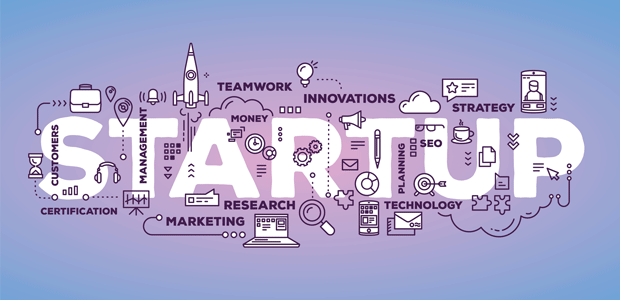
Start-ups are leading the metaverse transformation, not big tech
The metaverse is being hailed as the dawn of a new era of technology.
A new way for people to work collaboratively and more efficiently than ever before, incorporating advanced technologies such as augmented reality, underpinned by sophisticated artificial intelligence and fuelled by vast amounts of complex data. My industry, manufacturing, is set to benefit particularly from this digital transformation. It will allow engineers to work together intelligently and holistically, highlighting areas of concern or areas for improvement that would have been overlooked initially, or perhaps not detected until significant investment had gone into prototyping for factory planning.
But while the metaverse is seen primarily as the brainchild of companies such as Meta (formerly Facebook), the main companies pushing for digital transformation are start-ups, and supporting them is a no-brainer for the manufacturing industry. Small steps and unique individual technologies coming together is what will form the basis of an industrial metaverse. Whether that be advances in augmented reality to help train new staff on the factory floor, or sophisticated hardware able to gather tactile data and detect flaws overlooked by humans.
The collaboration and coordination of these start-ups and their innovative technologies is the best way to progress the development of a functional industrial metaverse, but it’s no mean feat. The Sixth Sense platform that I set up within my company, Hexagon, takes the best and brightest of manufacturing start-ups, nurturing some of the most advanced solutions that might otherwise not succeed in a highly competitive marketplace. This year’s theme is digital reality, and the cohort start-ups like Augmentir and Threedy are using it to help manufacturers improve their processes, leading to more dynamic and cost-effective operations.
In fact, start-ups already are doing amazing things, across the industry. They benefit from having the flexibility and creativity of a small business, without all the bureaucracy and complications associated with larger, established companies. But to survive on their own can be difficult, particularly when competition for funding can be incredibly high. Working with larger, more established companies is the ideal middle ground for the whole manufacturing ecosystem, with start-ups bringing the ideas and large companies providing the means for scaling those ideas.
Happily, start-ups working on metaverse-related technologies are already getting the recognition they deserve, helping prepare the world for this next stage in digital development. Ready Player Me for example – a digital reality start-up making virtual avatars from selfies – has garnered significant publicity for partnerships with brands like L’Oréal and Mytaverse. The ingenuity behind the metaverse is start-up based, and for start-ups digital integration is the next step.
Many of the start-ups involved in our Sixth Sense platform are looking at integration as a fundamental progression for their technologies, both within their sectors to help their manufacturing customers more easily use their software in hardware-agnostic ways, but also with a hope to be a part of a sleek and seamless metaverse.
Expediting this process of integration is necessary if start-ups want to remain competitive as they grow into small, but self-sufficient companies. The best way to speed up this process is to collaborate with the manufacturing leaders who have the experience, resources and can reduce the risk of innovation. But it’s a two-way street. Start-ups have the innovation but not the access, industry giants have the resources by not the flexibility. So, collaboration between these two groups is the fastest and most efficient way to nurture digital transformation and technological advancement.
The industrial metaverse is coming, and the benefits locked within will help to tackle some of society’s most pressing problems. The push for sustainability, the impacts of supply chain crises and the depletion of resources can all be targeted by a more holistic approach to manufacturing, and that’s what the metaverse is bringing. The best solutions are coming out of start-ups, but siloed technologies are not the best way to create an inclusive metaverse. Integrating start-ups into the mechanisms or ecosystems of large manufacturing giants like Hexagon, whilst retaining their own individual start-up identities is the best way to create an industrial metaverse fit for purpose.

